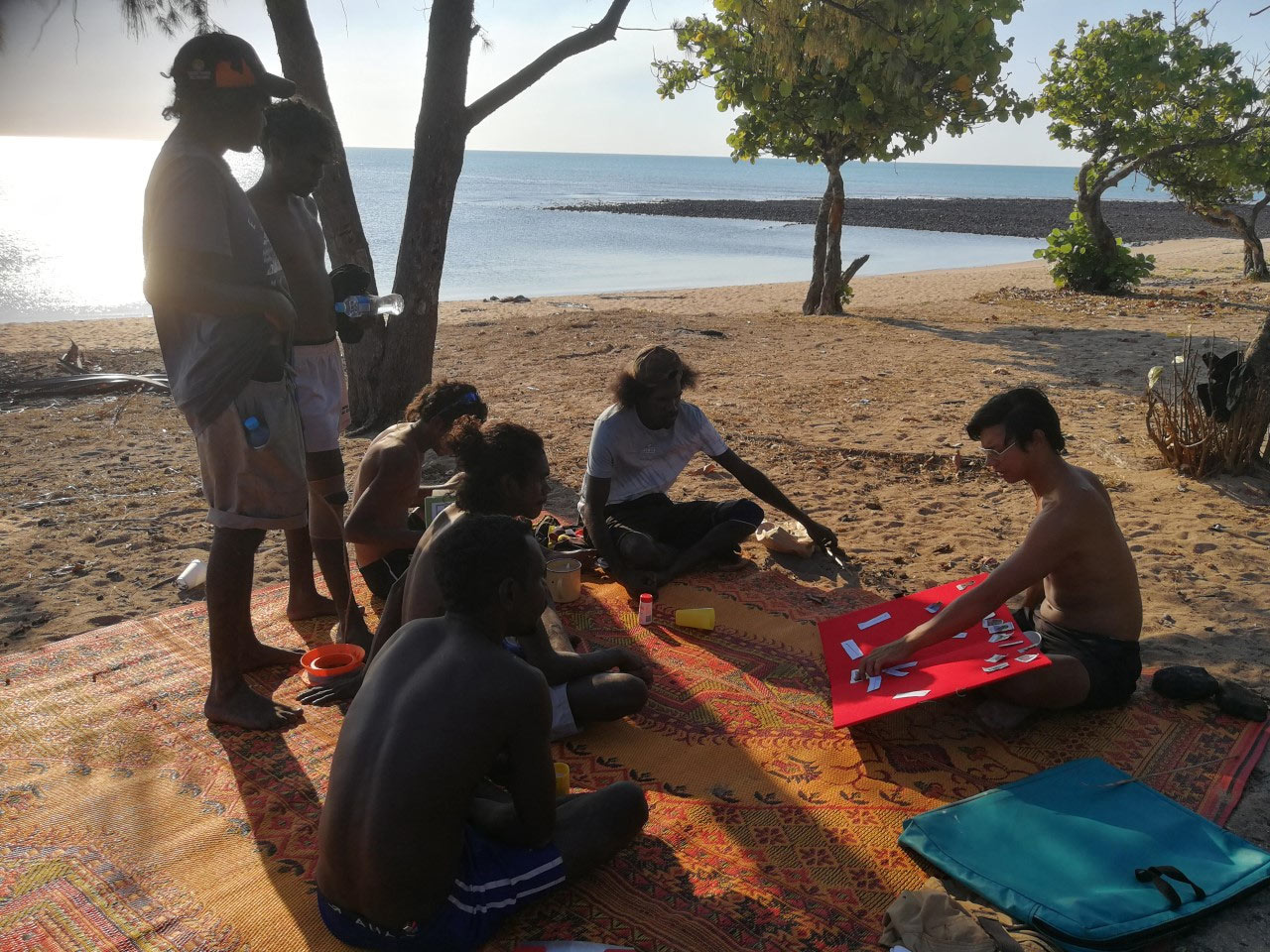“My grandmother was my mentor. She told me stories of what it was like growing up in Darwin as a young girl. It was even harder for Aboriginal people in those days.”
Yolonda’s grandmother’s mother passed away when she was 15 years of age. At that point, Yolonda’s grandmother sacrificed her ambition of becoming a nurse with the army and took on the role of raising her siblings. If she hadn’t looked after her siblings, they would have all been taken away as part of the stolen generation.
“My grandmother dedicated her teenage life to raising her brothers and sisters. One of her brothers had already been taken away at the age of five. Before her mother passed away, she looked for him everywhere and went to the shops every Saturday to put notices in the local Darwin paper in the hope of finding him. Then, her family was evacuated to Brisbane to escape the war in Darwin. It was only when her brother was dying in his 40s, having returned to Darwin in search of his family, that he was reunited with my grandmother – his sister. My grandmother told us how they found each other. She was in the hospital at the time, and a nurse came into the ward to ask if someone would like to talk to a man who was in his last stages. My grandmother agreed, and was astonished to find it was her brother who had been taken away. They had never found him as a boy, but he had only lived a few streets away, in an orphanage in Brisbane.”
Yolonda’s grandfather also shared stories of racism, including overtly discriminatory policies which continue to define the First Nations experience of systemic racism today.
“He told me how he was forced to sit in a different part of the pub, and how he and my grandmother weren’t allowed to own a home because they were Aboriginal. My grandparents encouraged me to make something of myself. They didn’t want me to experience their hardship. I was determined to make them proud.”
Compelled to psychology
In 1999, Yolonda graduated with a Bachelor of Psychology from Charles Darwin University (formerly known as Northern Territory University). After completing two years under supervision, she became a Registered Psychologist. Early in her career, Yolonda worked across a variety of fields to determine where she most wanted to be placed. She worked with war veterans, in child protection, correction facilities, the NFP sector and in government.
Taking a keen interest in mental health and the criminal justice system, Yolonda began her PhD with Griffith University in 2012 on Prison Quality and Social and Emotional Wellbeing of Aboriginal prisoners in the Northern Territory. For the last eight years, she has worked full time while conducting her research – an outstanding achievement. In 2015, she was awarded an Endeavour Research Fellowship for Indigenous Australians to undertake research in Alberta, Canada; it was to be a formative experience that would frame her approach to research for years to come.
“In Canada, I was placed with a native counselling service in Edmonton, interviewing staff and inmates about their experiences of prison. learned that these people shared similar experiences to First Nations peoples in Australia; dispossession of land, removal of children and other atrocities. In both contexts, it’s important to establish what ‘what matters’ most to incarcerated First Nations people and the impacts on social and emotional wellbeing.”
Returning to Australia, Yolonda continued working for the government and non-for-profits, but was particularly interested in opportunities with Aboriginal controlled community organisations.
Miwatj: Early experiences
One year into her PhD in 2013, Yolonda worked with us at Miwatj Health as a consultant providing psychological assessments. It gave her an opportunity to see an organisation run by the community. Since then, she’s kept her ear to the ground for a chance to work with us again. And now, she has it.
“Accepting a position such as this is not something I take lightly. I want to be of value to an organisation; I want to empower Aboriginal people, and I also want to be empowered to make genuine contributions. There are opportunities to be innovative and to expand services. I’m really looking forward to building on the good work that has already been done, and in particular, focusing on our young people.”
Looking back on her first couple of months with us, Yolonda says she has enjoyed the challenges.
“As an Aboriginal woman and a psychologist working for Miwatj, I feel that I can make a positive contribution to the Yolngu community. My practice aligns with Miwatj values because Miwatj it delivers programs by empowering Yolngu people to take control of their own health and wellbeing.
When it comes to the challenge of improving the health and wellbeing of First Nations peoples, Yolonda believes the answer lies in increasing accessibility to essential services; we need more Indigenous psychologists.
“We need to increase the Indigenous psychology workforce so that we not only support Indigenous psychologists but also non-Indigenous psychologists to better address the mental health disparities of Aboriginal people. I want to encourage and support other Indigenous people who are looking at Psychology as a profession in the hope of ultimately changing the landscape of Aboriginal mental health.”
Through her work with us at Miwatj, Yolonda is focused on increasing access to Aboriginal mental health services across East Arnhem Land.
“There’s an over-representation of First Nations people in need of mental health support, but not enough Aboriginal health professionals to service the demand. Across Australia, we need more mental health services run for, and by, Aboriginal people. It can be difficult for Aboriginal people to engage with mainstream services. Increasing access to Aboriginal mental health services means that Aboriginal people will have access to evidenced based care that respects and promotes their cultural integrity. This means we can also better establish prevention and intervention measures – and this is key to achieve better mental health outcomes.”

